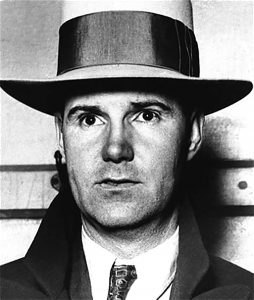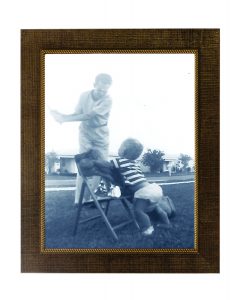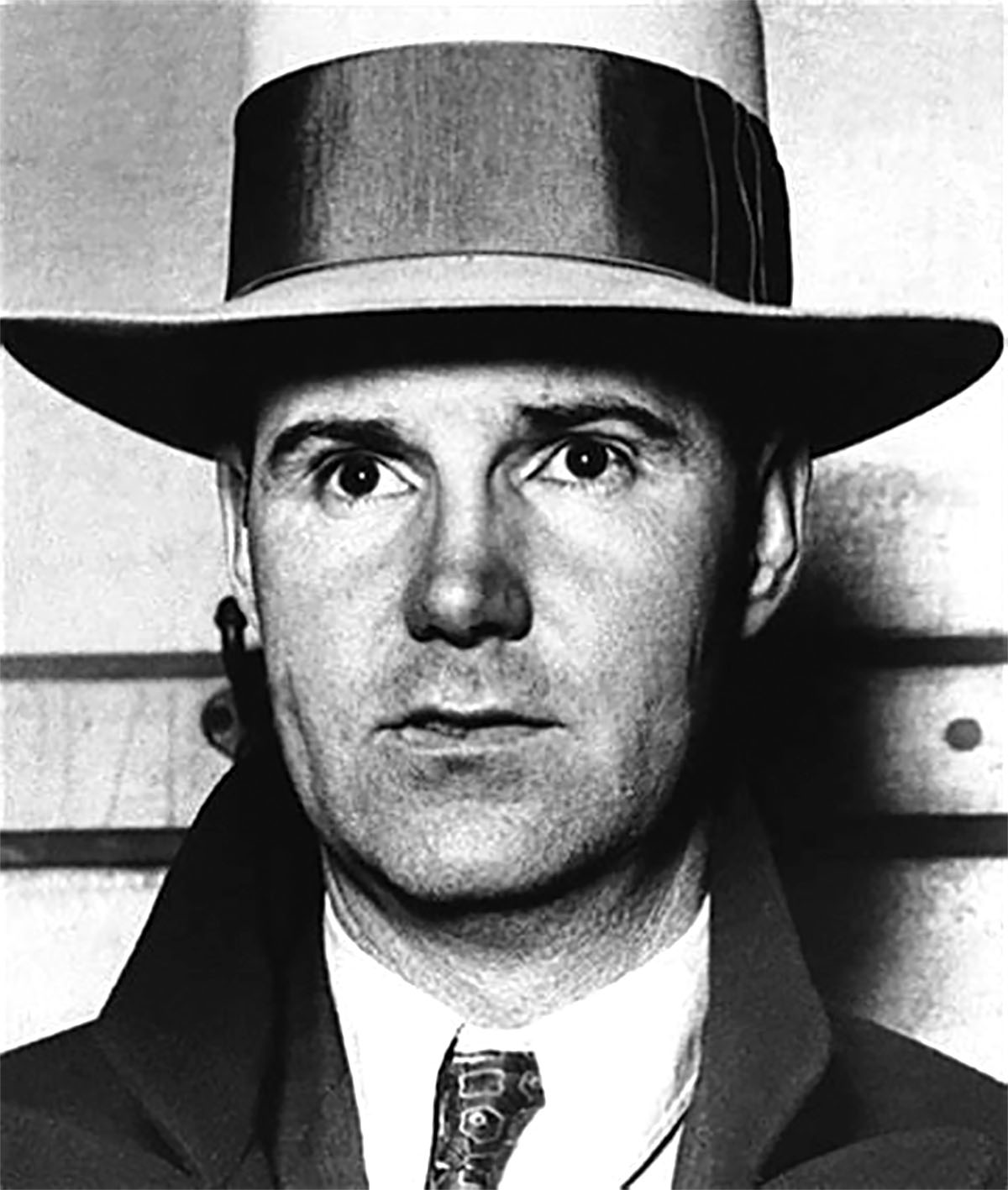 By Mike Stevens USGTF Member Tampa, Florida
Early golf in the United States was a gambler’s paradise, from legitimate wagers to more seedy pots controlled by mobsters. On the professional side, it was common for players to barnstorm the country, challenging locals to a money game backed by wealthy businessmen or scoundrels with several side bets among the gallery. It was pretty much a necessity, as professional tournament winnings barely covered expenses. Despite the so-called purity of amateur golf, some of the largest transfers of cash occurred at private clubs in Calcutta pools. It was just the way of the times, and one person was adept at taking advantage of gullible blue bloods around the country.
Alvin Clarence Thomas, aka Titanic Thompson, born on November 30, 1893, in southwest Missouri, became the most storied gambler in American history. Abandoned by his father, Alvin grew up on a farm in Rogers, Arkansas, with his mother and stepfather. An unruly child who disdained education, he left at age 16 with no money and entered the school of hard knocks. His street smarts would see him through a life of hustling and wagering on just about everything involving a gamble from cards to dice to pool, and even horseshoes. He spent hours on end honing his skills and could deal off the bottom of a deck of cards with both hands.
His card throwing skills were legendary, but many of his bets were set up skillfully to dupe the poor rube he suckered into a wager. He took special pleasure in swindling the rich and famous. One time he bet Al Capone he could throw a lemon over a five-story building. Capone picked a lemon from a nearby fruit vendor, but little did he know that Thompson’s sleight of hand changed out the lemon for one he had filled with buckshot. Capone handed over $500 as the lemon flew over the building.
Golf offered Titanic everything he loved: wagers of every kind and incessant hours of solitary practice. His relentless repetition with right- and left-handed clubs made him equally proficient from both sides of the ball. He spent a year just honing his skills before he set about challenging his marks at exclusive clubs of the rich and famous. All the while, he continued raking in cash from his flair with cards and pool cues. One day in the company of Capone and his entourage, Thompson declared that he could hit a 500-yard drive with a hickory club. Eager gamblers were ready to take him up on it, but he declared only when he was ready, “I have to feel it,” he said. So, one day in the middle of winter he announced that this was the day. Off they went to the local club and Titanic teed up the ball. There was as much as $50,000 on the line. Thompson addressed the ball and then turned around and launched the ball down the frozen lake behind the tee. The hoodwinked mobsters could only pay up as their convoluted code required them to honor the bet even if snookered.
Another story involves a time when Thompson said he could mark a ball with an X and hit it into a nearby pond and dive in and come up with the same ball. Little did the poor marks know that on the previous day, he hit several balls marked with an X into the pond. It was easy money. Now you understand the man and why the odds were always in his favor. Over the course of his golf life, he teamed with some of the most famous professional golfers of the era in big-money matches including Ben Hogan, Sam Snead and Byron Nelson. It was Thompson who arranged a famous match involving Ray Floyd and Lee Trevino with $100,000 on the line.
By Mike Stevens USGTF Member Tampa, Florida
Early golf in the United States was a gambler’s paradise, from legitimate wagers to more seedy pots controlled by mobsters. On the professional side, it was common for players to barnstorm the country, challenging locals to a money game backed by wealthy businessmen or scoundrels with several side bets among the gallery. It was pretty much a necessity, as professional tournament winnings barely covered expenses. Despite the so-called purity of amateur golf, some of the largest transfers of cash occurred at private clubs in Calcutta pools. It was just the way of the times, and one person was adept at taking advantage of gullible blue bloods around the country.
Alvin Clarence Thomas, aka Titanic Thompson, born on November 30, 1893, in southwest Missouri, became the most storied gambler in American history. Abandoned by his father, Alvin grew up on a farm in Rogers, Arkansas, with his mother and stepfather. An unruly child who disdained education, he left at age 16 with no money and entered the school of hard knocks. His street smarts would see him through a life of hustling and wagering on just about everything involving a gamble from cards to dice to pool, and even horseshoes. He spent hours on end honing his skills and could deal off the bottom of a deck of cards with both hands.
His card throwing skills were legendary, but many of his bets were set up skillfully to dupe the poor rube he suckered into a wager. He took special pleasure in swindling the rich and famous. One time he bet Al Capone he could throw a lemon over a five-story building. Capone picked a lemon from a nearby fruit vendor, but little did he know that Thompson’s sleight of hand changed out the lemon for one he had filled with buckshot. Capone handed over $500 as the lemon flew over the building.
Golf offered Titanic everything he loved: wagers of every kind and incessant hours of solitary practice. His relentless repetition with right- and left-handed clubs made him equally proficient from both sides of the ball. He spent a year just honing his skills before he set about challenging his marks at exclusive clubs of the rich and famous. All the while, he continued raking in cash from his flair with cards and pool cues. One day in the company of Capone and his entourage, Thompson declared that he could hit a 500-yard drive with a hickory club. Eager gamblers were ready to take him up on it, but he declared only when he was ready, “I have to feel it,” he said. So, one day in the middle of winter he announced that this was the day. Off they went to the local club and Titanic teed up the ball. There was as much as $50,000 on the line. Thompson addressed the ball and then turned around and launched the ball down the frozen lake behind the tee. The hoodwinked mobsters could only pay up as their convoluted code required them to honor the bet even if snookered.
Another story involves a time when Thompson said he could mark a ball with an X and hit it into a nearby pond and dive in and come up with the same ball. Little did the poor marks know that on the previous day, he hit several balls marked with an X into the pond. It was easy money. Now you understand the man and why the odds were always in his favor. Over the course of his golf life, he teamed with some of the most famous professional golfers of the era in big-money matches including Ben Hogan, Sam Snead and Byron Nelson. It was Thompson who arranged a famous match involving Ray Floyd and Lee Trevino with $100,000 on the line.
 Wherever big money and gambling were, Titanic Thompson was around. When mobster Arnold Rothstein was murdered after a poker game where he refused to pay up, thinking the game was fixed, Thompson was one of the players at the table. Whether you approve or not, his life story is fascinating and worth the read. He’ll be forever known as the man who would bet on everything.
Wherever big money and gambling were, Titanic Thompson was around. When mobster Arnold Rothstein was murdered after a poker game where he refused to pay up, thinking the game was fixed, Thompson was one of the players at the table. Whether you approve or not, his life story is fascinating and worth the read. He’ll be forever known as the man who would bet on everything.
Copyright © 2023 United States Golf Teachers Federation, All Rights Reserved
200 S. Indian River Drive, Suite #206, Fort Pierce, FL 34950
772-88-USGTF or 772-595-6490 - www.usgtf.com
200 S. Indian River Drive, Suite #206, Fort Pierce, FL 34950
772-88-USGTF or 772-595-6490 - www.usgtf.com

